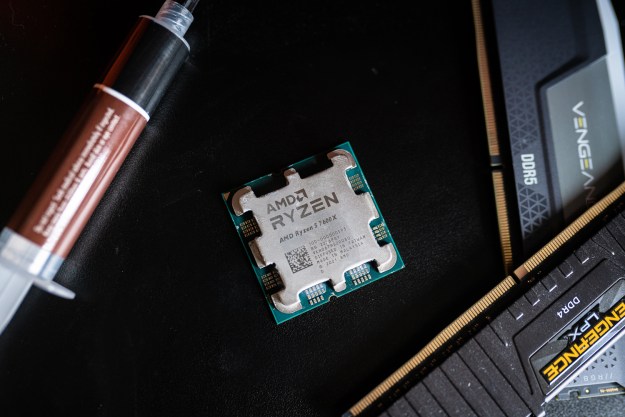During its latest earnings call, AMD revealed something that perfectly explains why we’re not currently swimming in cheap GPUs — and the slow start of 2023 for the PC market as a whole.
Signaling lowering demand for graphics cards and processors, AMD has been “under-shipping” chips in the last couple of quarters. What does that mean for GPU pricing going forward?

These days, only some graphics cards are in short supply. Nvidia’s RTX 4090 is difficult to find at MSRP. For AMD, you’ll find plenty of last-gen offerings as well as the less-than-stellar RX 7900 XT. If you want the flagship RX 7900 XTX, you’ll often find some models out of stock. AMD CEO Lisa Su explains why that is the case in the company’s latest earnings call.
“We do believe the first quarter is the bottom for our PC market — for our PC business, and we’ll see some growth in the second quarter and then a seasonally higher second half,” said AMD CEO Lisa Su.
Despite the fact that AMD has only recently released new Ryzen 7000 processors and Radeon RX 7000 graphics cards, the company expects the first quarter of 2023 to be rough in terms of sales. The market has slowed down considerably and the demand continues to drop.
“We undershipped in Q3, we undershipped in Q4. We will undership, to a lesser extent, in Q1,” stated Lisa Su, adding, “The first half [of the year] is usually a seasonally weak client time anyways.”
It’s easy to misread Su’s quote as AMD artificially limiting supply in order to main profitability, but that’s not the case. GPU and CPU prices will remain high, but AMD’s undershipment is a signal that retailers don’t want a glut of supply when there’s lowering demand.
In short, Su is referring to number of chips shipped to retailers, not end customers. Excess inventory would force retailers into a fire sale, bringing down prices, but with relatively low demand, retailers are keen not to buy up too much stock and be put in that precarious position.

The current economic climate doesn’t really encourage people to buy new PC hardware. GPUs have especially been hit by a number of factors. During the GPU shortage, the demand for graphics cards was much higher than the supply, causing the prices to skyrocket and cards to sell out in seconds. Scalpers have also had a constant field day, buying out GPUs to resell at massive markups. Most of AMD’s and Nvidia’s best graphics cards were in high demand.
Those days are long gone, though. Intel has seen the largest financial loss in years and decided to cut employee wages and benefits as a result. Nvidia itself also controls the supply of its cards, although it doesn’t share the same kind of insight as AMD did. AMD’s recent Ryzen 7000 chips dropped in price within just 6 weeks of their launch, meaning that even some of the greatest processors of this generation couldn’t face the lowering demand.
Editors' Recommendations
- AMD Zen 5: Everything we know about AMD’s next-gen CPUs
- AMD makes older PCs more upgradeable once again
- Nice try, Intel, but AMD 3D V-Cache chips still win
- AMD needs to fix this one problem with its next-gen GPUs
- AMD’s GPUs had a bigger year in 2023 than you might realize





